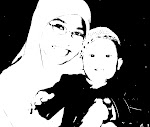Hmm...yang mana satu?

Begini?

Atau begini?

Gini kot....

Tanda-tanda stress ialah :-
1. Mudah Marah –> memang apabila terlalu banyak tekanan ianya akan meningkatkan kadar metabolisme dan seterusnya menyebabkan kepanasan dalam diri.. Dan apabila meletup , kemarahan akan muncul dan syaitan-syaitan pastinya bergembira dengan reaksi tersebut..
2. Mudah Kecewa –> memang stress akan menyebabkan seseorang individu akan mulai kecewa .. Kadar kekecewaan boleh dilihat dalam diri seseorang.. Kemurungan amat merbahaya jika stress ini tidak dikawal..
3. Moody –> Hm.. camne nak terangkan… Maksudnya keadaan perasaan yang tetiba je berubah..
4. Gangguan Proses Pemikiran —> Ini banyak berlaku kat saya.. Kadang kala stress boleh menganggu proses pemikiran dan membuatkan mudah lupa.. Sel-sel lama akan terpadam dan insan-insan ini perlu dibantu..
5. Kurang Kreatif –> bagi seseorang yang mempunyai pemikiran kreatif secara tiba-tiba hilang segala kekreatifan. Individu yang mengalami tanda ini mungkin sukar untuk melakukan keputusan kerana tidak dapat ’signal’ dari otak untuk menyelesaikan masalah.. Cam ada je..
6. Sakit mulut –> Hm.. dah lupa apa yang diterangkan oleh penceramah tentang tanda ni.. Mungkin stress menyebabkan mulut individu tersebut mengalami gangguan kot.. Mungkin sukar nak bercakap seperti jadi gagap secara tiba2 atau sebagainya.. Mungkin anda ada idea sendiri.
7. Masalah Penghadaman –> Pelik bukan tapi memang itu selalu berlaku terutamanya ketika ‘temuduga’. Kadang-kadang asyik ke tandas tapi tiada apa-apa yang dikeluarkan.. Saya rasa ramai yang pernah mengalaminya..
8. Rambut Gugur –> Masalah ini banyak berlaku terutamanya kepada cendiakawan.. Kadang kala rambut mereka gugur sebelum umur yang sepatutnya.. Mungkin stress ada tindakbalas kimia yang menyebabkan berlakunya keguguran rambut ni
9. Sakit kulit –> Nak tau camne sakit kulit akibat dari stress?? Cuba pandang muka anda.. dan jika ada jerawat batu ( seperti saya) sudah pastinya anda telah atau sedang mengalami stress.. Sebab itu kadangkala pasangan bercinta yang mengalami konflik timbul jerawat2 batu kat muka.. Betul tak?? Ntah.
11.Susah nak tidur –> Yang ini biasa gak berlaku pada saya.. Susah nak tidur bila memikirkan sesuatu masalah yang menimbulkan stress.. Perlu diambil perhatian kerana mampu menyebabkan masalah lain..
petikan laman ligakampung.com




No comments:
Post a Comment